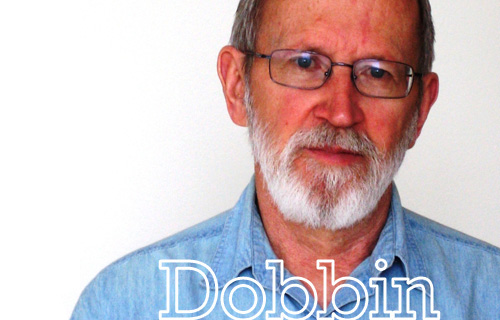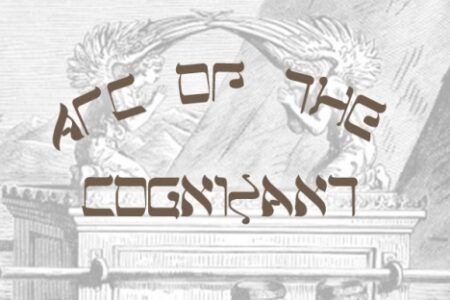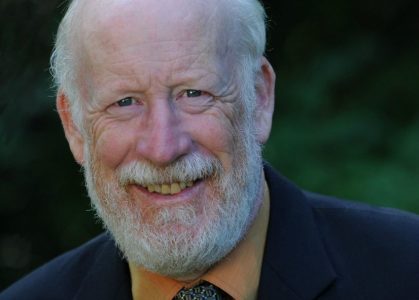What's really at stake in the Ukraine?
It’s difficult to know which is the more disturbing aspect of the crisis in Ukraine. Is it the deliberate obfuscation of the truth by Western leaders like Stephen Harper (and their complicit media)? Or is it the truth itself — the casual acceptance by the West of an illegal, coup-installed regime in Kyiv populated by neo-Nazis and anti-Semites?
You don’t have to choose between them. You should be very concerned about both. Democracy is impossible without an informed citizenry and given the effective collusion between the Harper government, the Canadian media and the geo-political interests of NATO, we seem doomed to remain uninformed.
The truth about Ukraine is hard to come by, as it is a complicated country that has had deep divisions for much of its recent history. But the West, which eagerly intervened financially and politically in the protests early on, encouraging ever more radical and confrontational actions, knew these complexities — or should have. On the face of it, if the U.S. and its EU allies knew what they should have known, it seems hard to conclude anything but that Western actions were a deliberate provocation of Russia.
And it’s not difficult to provoke ex-KGB autocrat and Russian hyper-nationalist Vladimir Putin, something else the West knows. It is simply not possible that the U.S., U.K., France and Germany could not have anticipated at least the possibility of Putin’s strong reaction to the events in Kyiv. For Russia and Putin, Ukraine is an existential issue with a relationship going back centuries, yet it seems no one in the West operates from this understanding.
The portrayal of the new government as a reclaiming of democracy lost is laughable. The U.S. and its allies always put great stock in democratic institutions until it doesn’t suit them. As corrupt, inept and autocratic as Viktor Yanukovych was, he was elected in an election that was judged by outside monitors as fair and free. Yanukovych was forced out of office by increasing threats of violence. His “impeachment” was no more legal constitutionally than the Crimean parliament declaring independence from Ukraine. One illegal act spawned another.
But it is the makeup of the new government that should have signaled unmistakably to the West that Russia would never acquiesce to the creation of a regime chock-a-block with neo-Nazi ministers utterly hostile to Russia — and to Russians in eastern Ukraine. One of the first acts of the government was to repeal legislation that allowed for Russian to be a second official language in the east. The new regime is also talking about banning the communist party and that of Yanukovych’s Party of Regions, even though it has now disowned him.
Five members of the new cabinet are members of the Svoboda party as are three senior officials. Established in 1991, its members idolize Stepan Bandera, whose followers in the Organization of Ukrainian Nationalists (OUN) fought against the Red Army alongside the Nazis. The OUN played the role of policing Ukraine once the Nazis had conquered it and participated directly in the Holocaust. According to journalist Justin Raimondo, the Banderists declared “The Jews of the Soviet Union are the most loyal supporters of the Bolshevik Regime and the vanguard of Muscovite imperialism in the Ukraine.” When the Germans took Lviv in the summer of 1941, the Banderists sent a message to Lviv’s Jews in the form of a pamphlet that said: “We will lay your heads at Hitler’s feet!” The OUN and the SS arrested and executed 4,000 of the city’s Jews.
In a story dripping with tragic irony, John Baird’s (and Hillary Clinton’s) comparison of Russia’s bloodless occupation of Crimea to the Nazi invasion of the Sudetenland is ridiculous. Baird doesn’t need analogies — there are real Nazis here, just not on the side Baird suggests.
And these are the people that U.S. Secretary of State John Kerry, John Baird and the hapless Liberal Chrystia Freeland shake hands with when they travel to Kyiv to meet with the new government. Did Baird, champion of Israel and implacable enemy of the “new” anti-Semitism, talk to his Ukrainian counterpart about the truly deadly “old” anti-Semitism that infects the new government?
Among the members of Svoboda in the cabinet are, according to Raimondo:
Andriy Parubiy, National Security Council chief and co-founder of the party when it was called (not so subtly) the “Social-National Party.”
Oleh Makhnitsky, Svoboda member of parliament and prosecutor general.
Andriy Moknyk, the new minister of ecology, who has been Svoboda’s envoy to other European fascist parties. Last year, he met with representatives of Italy’s violent neo-fascist gang, Forza Nuova.
Ihor Tenyukh, interim defence minister and a member of Svoboda’s political council. Formerly commander of Ukraine’s navy, in 2008 during Russia’s war with Georgia, he ordered Ukrainian warships to block the entrance of the Russian Navy to the bay of Sevastopol.
Svoboda’s leader, Oleh Tyahnybok, now a senior official in the new government, announced in the Ukrainian parliament in the past that the country was secretly controlled by a “Moscow-Jewish mafia” (Jews makes up 0.15 per cent of the Ukrainian population).
The other right-wing group represented in the new cabinet is even more violent and more recently formed — the so-called Right Sector, a militant neo-Nazi paramilitary group that took charge of security in the Maidan. Dmytro Yarosh, the founder and leader of the group, is now deputy head of the National Security Council — the national police. Yorash has indicated that he will reconstitute the police with Right Sector members, whom he boasted had already amassed the necessary weapons. As deputy head of the police it isn’t hard to imagine on whom he might focus his attention and his hatred. According to TV network Russia Today:
“Yarosh has called on Russia’s most wanted terrorist Doku Umarov [The U.S. has a $5 million price on his head for terrorism] to act against Russia in an address posted on Right Sector’s page in VKontakte social network…. The radical leader has been consistently anti-Russian in his statements, calling for the destruction and division of the ‘Moscow Empire’ and openly supporting Chechen militants and Georgian aggression. Yarosh believes Russia is Ukraine’s ‘eternal foe’ and has said that war between the two countries is ‘inevitable.’”
Right Sector also wants nothing to do with Europe or the EU deal, according to Andriy Tarasenko, a party co-ordinator: “For us, Europe is not an issue, in fact joining with Europe would be the death of Ukraine.”
Yarosh announced last week that he will run for president in May.
The notion that the West — whose fingerprints are all over every aspect of this completely unnecessary crisis — could help Russia “mediate” a diplomatic solution with a coup-installed government that includes virulently anti-Russian neo-Nazis, is Western delusion in its purest form. But when the West believes its own lies and rhetoric, its demands become ludicrous. Someone should teach Americans about irony after John Kerry, who voted for the invasion of Iraq in 2002, attacked Russia for “invading another country on a completely trumped-up pretext.”
But the U.S. and EU narrative on the crisis is falling apart, if not in the U.S. and Canada then in Europe. That narrative rests almost entirely on the slaughter of some 50 demonstrators, allegedly by Ukrainian police and at the behest of Yanukovych himself. But this story is turning out to be the equivalent of the weapons-of-mass-destruction narrative that the U.S. and U.K. used to justify the invasion of Iraq. Evidence is mounting that the snipers were actually from the opposition side of the struggle — most likely from the notorious Right Sector.
This account of the killings (which included 27 police, a fact hardly ever mentioned in the Western media) was first revealed in a secretly recorded phone conversation between Catherine Ashton, head of EU foreign affairs and Urmas Paet, the Estonian foreign minister. According to the Guardian newspaper, “In the call, Paet said he had been told snipers responsible for killing police and civilians in Kyiv last month were protest movement provocateurs rather than supporters of then-president Viktor Yanukovych.” Paet told Ashton, quoting a Russian doctor, “What was quite disturbing, this same Olga [Bogomolets] told that, well, all the evidence shows that people who were killed by snipers from both sides, among policemen and people from the streets, that they were the same snipers killing people from both sides.”
This would explain what appeared to be Yanukovych’s sudden and inexplicable resort to deadly force against demonstrators after weeks of using tear gas and water cannon. Until that orgy of killing the government had been remarkably moderate in its response. For days the police endured scores of fire bombs being rained down on them, and attacks by people protected by helmets and body armour and armed with iron pipes, bats and later firearms — with many policemen badly burnt and around a dozen killed. Still the response was tear gas and water cannon. Police were unarmed. Imagine for a moment how American officials or those in Canada would have responded to similar violent attacks on police protecting government buildings.
The narrative also relies on the characterization of the government as “tyrannical.” Yet the original demonstrations were focused almost exclusively on a decision that was, like it or not, completely legitimate for a democratic government. Yanukovych was openly corrupt and clearly no angel, but to declare him a tyrant because of a policy switch is absurd.
While Yanukovych is portrayed as having “betrayed” Ukrainians by suddenly deciding not to sign an economic pact with the EU, what is not well known is that the pact would have obliged Ukraine to virtually close its doors to expanded economic co-operation with Russia. The EU rejected a Russian proposal for a tripartite agreement that would have allowed Ukraine to balance its economic future. The EU deal also contained a military integration clause which offered a backdoor into NATO — a stunning provocation to Moscow. This was reckless and irresponsible overreach by EU bureaucrats with no appreciation of the history of Russia and Ukraine. It was such an alarming agreement that Putin upped the ante with an offer of $15 billion euros in aid (and likely an end to cheap gas if they refused the aid package).
Let’s be clear — there are no good guys in this drama. Putin is an unrepentant KGB autocrat and his occupation of Crimea is, provocation or not, unjustified and illegal. Yanukovych was corrupt, inept and unpopular across Ukraine. The new government in Kyiv is there illegally and its acceptance of openly fascist individuals into its cabinet gives increased legitimacy to their political parties and to the violence they initiated. While there are violent and organized anti-Semites in western Ukraine, the eastern part of the country and Russia have more than their share, too — and skinheads have been seen attacking the Muslim minority Tatars in Crimea.
The larger geo-political question relates to whether or not the West and its aggressive military alliance NATO really want to have Russia as a partner, or if they are determined to make it an adversary. While it is hard to imagine what advantage the latter policy would be to any player, all of the West’s actions seem to lead to that conclusion. The other possibility — that NATO countries have simply made egregious error after error in assessing Russia’s interests and its role in Europe — may actually be preferable as it at least holds the hope of a correction.
Both Russia and the West are set to lose from this confrontation. But the U.S. is set to lose more from its aggressive stance, which is puzzling given that Obama came to power promising to reset the relationship with Russia. Russia has been a key ally of the U.S. — allowing its air space to be used in the invasion of Afghanistan, contributing major resources to the fight against terrorism and playing critical roles in the current negotiations going on with Syria and Iran. And America’s European allies are dependent on Russia for natural gas well into the future.
Given all of that, we might want to ask Stephen Harper and John Baird just what they hoped to accomplish by comparing Putin to Hitler, recalling our ambassador and generally reviving reckless and ignorant Cold War rhetoric.
But posing such a question is probably pointless.
It seems that every foreign policy opportunity that presents itself to this rogue regime in Ottawa is used to micro-manage some part of the electorate. For Harper it has nothing to do with responsible foreign policy. It’s all about playing the Canadian Ukrainian community. It’s a variation on that old theme, follow the money. With Harper, it’s follow the votes, the state of the world and our reputation be damned.
Murray Dobbin is a journalist, author, and activist. This column originally appeared on his blog. Reprinted with permission.


























Comments